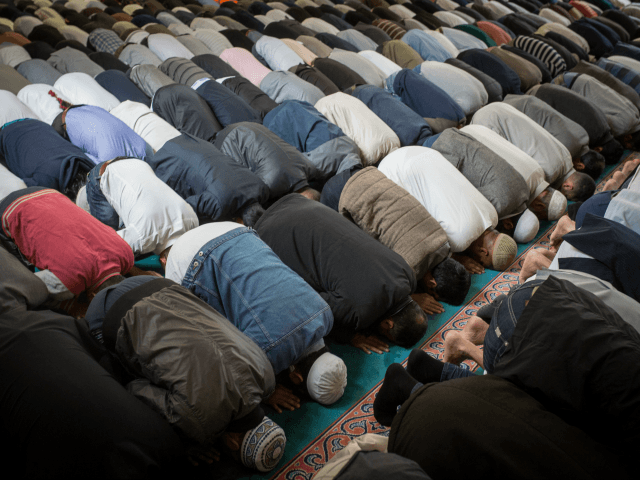Somalia has kept its mosques open during Ramadan despite the coronavirus pandemic, attracting a flood of faithful Kenyans from across the countries’ shared border, Kenyan newspaper the Daily Nation reported on Monday.
Kenya has closed its mosques as part of lockdown measures meant to curb the spread of the Chinese coronavirus. Muslims are currently observing Ramadan, the holiest month on the Islamic calendar, during which they normally visit mosques to pray communally.
Devout Kenyans from the northeastern border city of Mandera have been sneaking into Somalia to perform taraweeh, or nightly prayers, at open mosques there, according to the newspaper. This has prompted Kenyan government officials to remain alert to similar border crossings in other areas, fearing a rise in imported coronavirus cases.
In the border county of Wajir, health authorities confirmed that at least two coronavirus cases were imported from Somalia due to this type of border crossing, according to the Daily Nation. Kenya shares a long border with Somalia, making it difficult to track movement between the nations.
In Mandera, Governor Ali Roba ordered a total lockdown of the county, banning the entry and exit of people and vehicles. Mandera County Commissioner Onesmus Kyatha said that anyone found sneaking out of Kenya to Somalia to pray would be placed under forced quarantine at their own expense and later prosecuted, the Daily Nation reports.
“We have information that several residents of Mandera have been crossing into Somalia to perform prayers in mosques there. We have activated our security operation, and anybody found [crossing the border] will be arrested and prosecuted after completing a 14-day quarantine,” Kyatha said.
Kyatha urged local Islamic religious leaders like imams and sheiks to enforce government directives prohibiting movement across borders during the coronavirus lockdown, which Kenya implemented last month.
In Wajir, where imported coronavirus cases have been confirmed, county governor Mohamed Abdi organized a team of health workers to visit Diff, Dadajabula, and other towns to screen residents for coronavirus and disinfect public spaces. On Sunday, the governor ordered a two-week lockdown of Diff. The Wajir county administration also ordered the closure of livestock markets, the Daily Nation reports.
“The closure is informed by the risk level of the market since traders are known to move across the border to Somalia to get stock,” health executive Ahmednadir Omar Sheikh said.
On April 6, Kenya’s president placed sections of the country on lockdown in an effort to curb the spread of the Chinese coronavirus. Nairobi banned entry and exit in four regions of the city most affected by the coronavirus. Mombasa, a port city, and the counties of Kilifi and Kwale were also locked down. On March 27, Kenya enacted a dusk-to-dawn curfew to limit people’s movements.
At press time on Tuesday, Somalia had recorded 835 infections and 38 deaths from the Chinese coronavirus, while Kenya had reported 535 infections and 24 deaths from the virus.

COMMENTS
Please let us know if you're having issues with commenting.